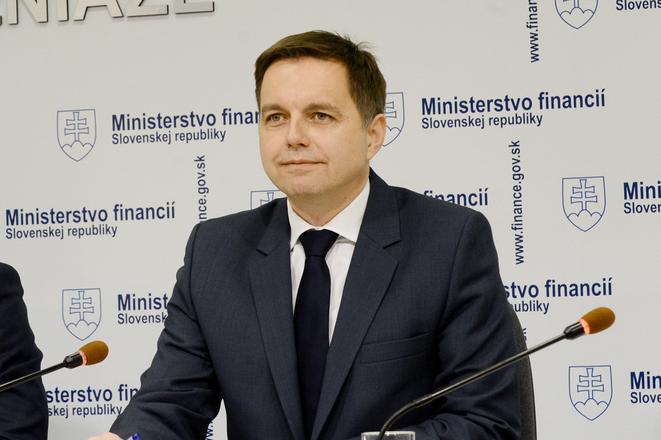Changes to the Budgetary Responsibility Act should not be made solely to accommodate investments in transport, but should also be embraced in other spheres such as education, health and defence, believes Finance Minister Peter Kažimír (Smer). He expressed this view at a conference dedicated to the future of the current so-called debt brake, aimed at preventing the state from slipping too far into debt, organised by Trend economic magazine on July 4.
Kažimír delineated three alternatives to the current scheme: a transition to a net debt instead of the current gross debt (which would enable more flexible financing of Slovakia’s state debt) preserving the gross debt while scrapping the progressive character of sanctions, and the introduction of investment exemptions. The last alternative has already been discussed for some time.
The parliamentary committee of finances will prepare the draft revision.
“It’s important for us to inspire lawmakers so that they can draft a good amendment that will meet the conditions necessary to sustain the trustworthiness of the entire [Budgetary Responsibility] Act as well as of public finances,” said Kažimír, as cited by the TASR newswire.
If Slovakia introduced investment exemptions, these should be created by an extraordinary parliamentary committee. It will decide on the exemptions on an ad hoc basis.
However, the Council for Budgetary Responsibility (RRZ) chair, Ivan Šramko, stated that the Budgetary Responsibility Act is a law of top-notch quality. The council does not think that it is necessary to change the rules of the debt brake.
“There’s leeway for investments by 2025,” said Šramko. “A balanced budget will pave the way for investments worth €16 billion by 2025.”
Šramko added that revising the rules is neither necessary nor appropriate, as it could lead to a worsening of long-term sustainability and a reduction in the credibility of public finances.

This did not sit well with Kažimír.
“I don’t share the RRZ’s view that there is leeway [for investments],” said Kažimír.



 Finance Minister Peter Kažimír (source: TASR)
Finance Minister Peter Kažimír (source: TASR)